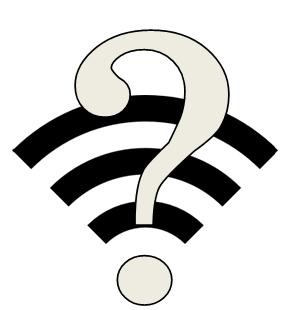By Peter Hong
Are you concerned with your privacy on the Internet? Of course, you are. We all are.
Now, how much do you trust the government to protect your privacy?
Depending on how you answered the second question, Congressional Democrats might have a bridge in the desert to sell you.
They have launched a petition drive urging President Donald Trump to veto legislation passed by Congress this week rolling back the “midnight broadband regulations” issued by the Federal Communications Commission (FCC). Published in the waning hours of the Obama Administration, these regulations would have expanded the FCC’s administrative reach by imposing prescriptive data restrictions on Internet service providers (ISP).
The FCC’s final rule would have regulated ISPs, like Verizon or AT&T, more strictly than their counterpart website operators — giants like Google and Facebook. Specifically, the FCC’s edict would have required ISPs to obtain explicit consumer consent (an “opt-in”) before sharing consumer information with other parties, including advertisers.
On the surface, it sounds good: the government wants to protect my online privacy. But a quick look under the tent of the administrative state reveals something totally different — and dangerous.
The regulations specifically targeted ISPs.
The FCC regulations specifically targeted Internet service providers. One of the biggest problems arising from the growth of the administrative state is government arbitrarily picking winners and losers — instead of the market. While ISPs retain little sympathy from their subscribers or the general public, they do provide a service for which their subscribers choose to pay. The cost of additional regulatory burden is often passed on through higher prices or diminished quality of service to the consumer. This means you and me.
The regulations left giants like Facebook and Google off the hook.
The FCC regulates ISPs, but does not touch website operators — like Facebook or Google — or giant Internet retailers, such as Amazon. Not that it should, but Google and Facebook are the two dominant players in the multibillion market of digital advertising. Therefore, the FCC regulations would have created a regulatory double standard for ISPs and Facebook/Google and other online advertisers; Congress’ action simply retains a level playing field. Also, the FCC rules could have led users into a false level of comfort about how well their privacy was actually being protected, when the bulk of browsers history would still be culled freely by online advertisers.
The regulations allowed the FCC to usurp the authority of the FTC.
If there is anything more fierce than the administrative state’s constant need to control the behavior of everyday Americans, it is bureaucratic infighting within the halls of government. The Federal Trade Commission (FTC) is the government’s designated consumer protection agency. By contrast, according to its own website, the FCC is the “federal agency responsible for implementing and enforcing America’s communications law and regulations.”
In usurping the traditional role of the FTC, the FCC adopted a more rigid regulatory standard that actually would have been counterproductive to consumer privacy protections. Also, because the FCC sought a heavy-handed approach, the regulations would have limited economic incentives to provide innovations in consumer products and services.
As bureaucrats compete for regulatory turf by trying to outdo each other, the escalating burden falls on the consumer. No matter which agency outduels the other, the real loser is you.
The regulations were opposed by the Chairman of the FCC.
The FCC regulations were passed over the objections of FCC Chairman Ajit Pai, an Obama appointee. Yes, you heard that correctly: the FCC’s own chairman opposed the rule when it was passed.
Following Congress’ vote, Chairman Pai celebrated the decision to rescind his own agency’s regulations: To his great credit, Chairman Pai pledged to work with the FTC to protect online consumer privacy through a “consistent and comprehensive” framework. Pai too noted the different treatment between ISPs and Internet advertisers like Google and Facebook in the regulation.
The regulations are unnecessary when free market innovations in privacy protection like virtual private networks are already here.
Free markets have always spurred creative thinking for new and innovative products and services to meet consumer demand — and online privacy is no exception. Online consumers seeking privacy protection have powerful tools — such as data encryption — available to them in the forms of apps, extensions and services like virtual private networks, like NordVPN.
In fact, using a virtual private network may be the only way to truly protect Internet privacy and user data from being collected, whether it is from ISPs, Internet advertisers or anyone else.
And, so long as the government does not interfere, there are more to come.
By rescinding the rules, Congress invites the free market to instead secure Internet privacy and user data, in effect promoting and creating market opportunities for vendors like NordVPN. If more users encrypt their Internet connections with virtual private networks, that will make user data more secure over the long run.
For those who are still willing to trust the government to protect their online security and privacy, consult any of the 18 million federal employees who had their personal information stolen in the Office of Personnel Management data breach scandal. If the federal government cannot even protect its own employees, how can it protect you?
Still, if you’re convinced that more government action is needed — in spite of the costs, the risks, the administrative overreach, and the track record of the federal government, check out the Democrats’ petition on whitehouse.gov.
But if you really want to protect your Internet privacy, pony up and subscribe to a virtual private network.
Peter Hong is a contributing reporter at Americans for Limited Government.







